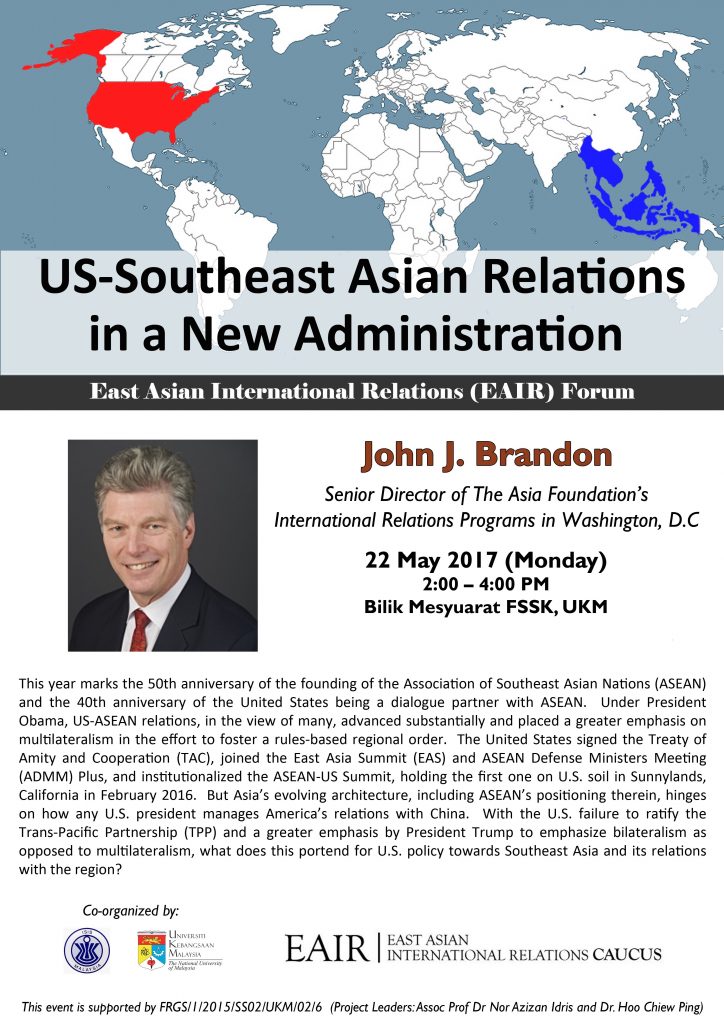
John J. Brandon
22 May 2017
This year marks the 50th anniversary of the founding of the Association of Southeast Asian Nations (ASEAN) and the 40th anniversary of the United States being a dialogue partner with ASEAN. Under President Obama, US-ASEAN relations, in the view of many, advanced substantially and placed a greater emphasis on multilateralism in the effort to foster a rules-based regional order. The United States signed the Treaty of Amity and Cooperation (TAC), joined the East Asia Summit (EAS) and ASEAN Defense Ministers Meeting (ADMM) Plus, and institutionalized the ASEAN-US Summit, holding the first one on U.S. soil in Sunnylands, California in February 2016. But Asia’s evolving architecture, including ASEAN’s positioning therein, hinges on how any U.S. president manages America’s relations with China. With the U.S. failure to ratify the Trans-Pacific Partnership (TPP) and a greater emphasis by President Trump to emphasize bilateralism as opposed to multilateralism, what does this portend for U.S. policy towards Southeast Asia and its relations with the region?
About the Speaker: John J. Brandon is Senior Director of The Asia Foundation’s International Relations Programs in Washington, D.C., as well as Associate Director of the Washington, D.C. office. In 2016, Brandon managed the Foundation’s signature foreign policy initiative, “Asian Views on America’s Role in Asia” as well as past iterations of this project in 2004 and 2008, which examined US-Asian relations in-depth and made recommendations on US policy. His other responsibilities include monitoring U.S. policy toward the Asia-Pacific region and managing program activities in Washington. A Southeast Asia specialist by training, John Brandon’s opinion pieces have appeared in The International Herald Tribune, The Christian Science Monitor, and other newspapers in the United States and in Asia. He is also a regular contributor to the Foundation’s “In Asia” blog in which he writes about political, economic, and social currents in Southeast Asia and U.S. interests in the region. Brandon has served on Task Forces for the Council on Foreign Relations and The Stanley Foundation that examined U.S. policy towards Southeast Asia. He has a M.A. in Political Science and Southeast Asian Studies from Northern Illinois University and a B.A. in History from Drew University.
